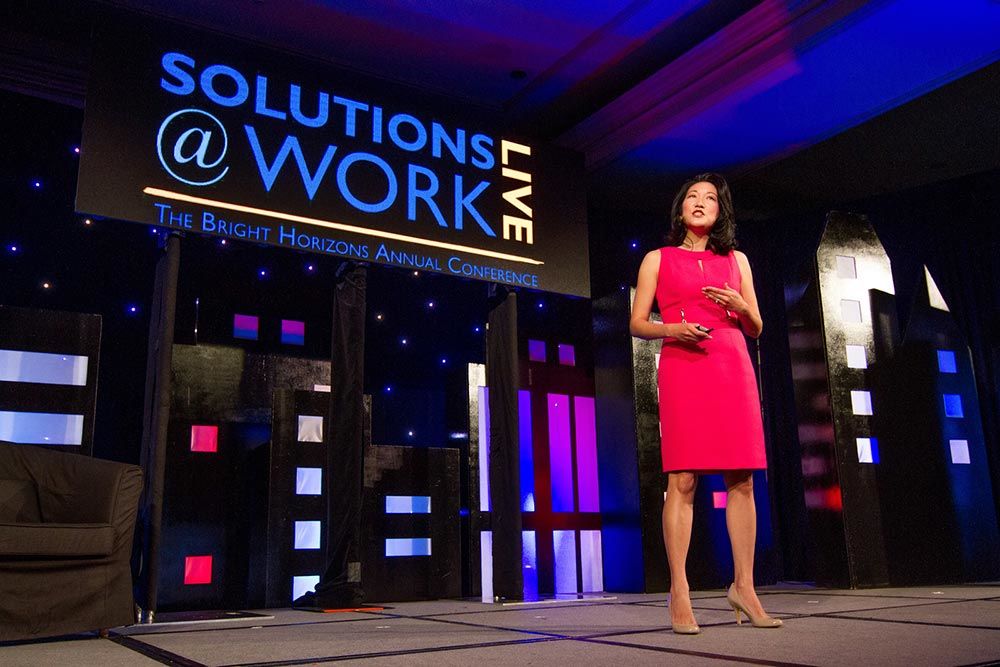There's nothing uplifting about a recent Wall Street Journal report on the state of eldercare:
"They often feel guilty for not being there to take a parent to the doctor and uncertain about how someone is really doing."
More than a third of elder caregivers are going to loved one's sides several times per week; nearly 40% are juggling multiple weekly tasks from afar. A sick or injured adult loved one accounts for more than half of the reasons caregivers miss work - even more than children. There are also stress levels and lifestyle issues (inability to exercise; no time for caregivers' own medical appointments) that fuel a new set of worries, namely health problems that raise costs for everyone.
It makes sense since there's more than just individual hours at stake. The Accenture leader herself talked about leveraging back-up care multiple times for her long-distance grandmother's care. "I think my whole workday would be a little bit off if I sat and I was worried about her all day," she said.
It's a common story, particularly among leadership. Research shows that the higher up the ladder you go, the more mobile people become - and so the further they live from parents. It's a big issue since a fifth of employees, according to the Wall Street Journal, have had to cut back hours. And even those who live close to family - or even with them -- need help; 44 percent of those living with an adult relative told our study they're providing care almost every day, putting them in the unenviable position of choosing between work and family. And as one employer with back-up care told us: "It's less expensive to get people to work than to find someone to cover for them."
For businesses around the country, the situation is not an if, but a when. Aging, after all, is a part of the human condition. If things go well, we'll all get there eventually. But it isn't always easy.
"Taking on the role of caregiver comes with numerous challenges, both in personal and work lives." Writes WSJ. "Families are putting together a patchwork of support, which can fray at the first broken hip."
- 34 million people are providing unpaid care for families
- Many live far from loved ones
- The options are scant: drop everything (including work) and run to a loved one's side...or be in a perpetual state of worry about what could go wrong.
"They often feel guilty for not being there to take a parent to the doctor and uncertain about how someone is really doing."
Eldercare and Business: Assessing the Data
The problem may look like a purely personal one, but it isn't. Recent data from our study of caregivers shows a sizeable toll taken on businesses, with such unpaid caregiving using up substantial amounts of time - much of it taken from work.More than a third of elder caregivers are going to loved one's sides several times per week; nearly 40% are juggling multiple weekly tasks from afar. A sick or injured adult loved one accounts for more than half of the reasons caregivers miss work - even more than children. There are also stress levels and lifestyle issues (inability to exercise; no time for caregivers' own medical appointments) that fuel a new set of worries, namely health problems that raise costs for everyone.
More Than Just Productivity at Stake
And business leaders are taking note. These days, child care isn't the only dependent issue on the radar. "The aging population is one in which we are also having to place more and more focus on and provide greater programs within our workplace," Accenture told us sometime back. At companies like Accenture, that's translated to subsidized help in the form of back-up care as assistance; many also offer resources to help people find longer-term arrangements.It makes sense since there's more than just individual hours at stake. The Accenture leader herself talked about leveraging back-up care multiple times for her long-distance grandmother's care. "I think my whole workday would be a little bit off if I sat and I was worried about her all day," she said.
It's a common story, particularly among leadership. Research shows that the higher up the ladder you go, the more mobile people become - and so the further they live from parents. It's a big issue since a fifth of employees, according to the Wall Street Journal, have had to cut back hours. And even those who live close to family - or even with them -- need help; 44 percent of those living with an adult relative told our study they're providing care almost every day, putting them in the unenviable position of choosing between work and family. And as one employer with back-up care told us: "It's less expensive to get people to work than to find someone to cover for them."
For businesses around the country, the situation is not an if, but a when. Aging, after all, is a part of the human condition. If things go well, we'll all get there eventually. But it isn't always easy.
"Taking on the role of caregiver comes with numerous challenges, both in personal and work lives." Writes WSJ. "Families are putting together a patchwork of support, which can fray at the first broken hip."





